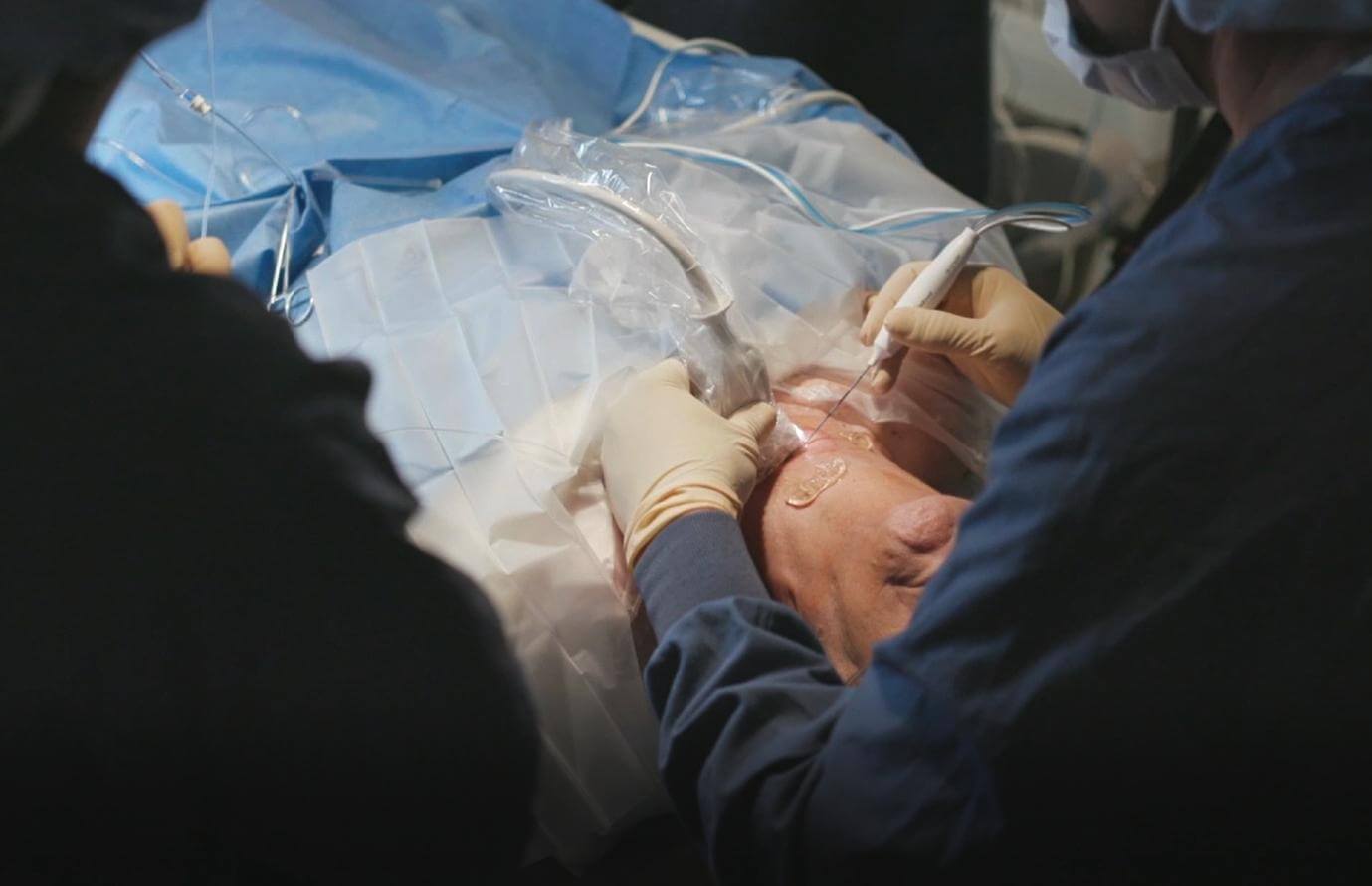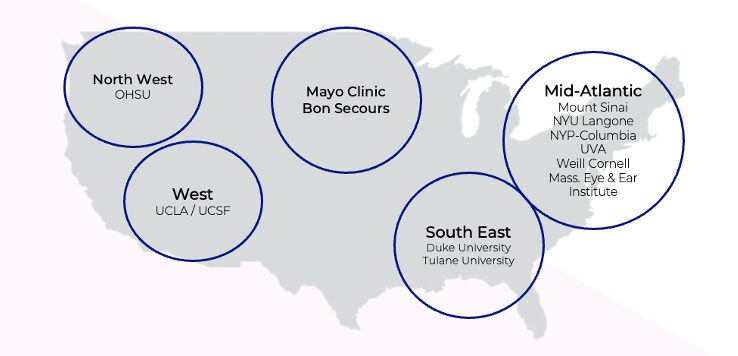In the 21st century, patients need to stay informed about their conditions to ask smarter questions and make better decisions about their health conditions. This is especially true for patients with thyroid nodules. Today, we are going to help you learn who makes a good candidate for the new non-surgical thyroid nodule treatment — Thyroid Radiofrequency Ablation (RFA) — so that you can be educated on your options.
Thyroid nodules and Symptoms
Thyroid nodules are common overgrowths on the thyroid gland that do not cause any symptoms most of the time. Only a small portion of thyroid nodules are malignant. Many patients are not even aware they have a thyroid nodule until their doctor discovers a swelling or through an abnormal blood test. Symptoms typically include a raspy voice, difficulty swallowing and breathing, coughing, dizziness, and swelling at the back of the neck. Symptoms can be caused by benign growth or malignant growth.
Benign vs malignant thyroid nodules
Tumors or overgrowth, in general, can be of two types: benign and malignant. Benign nodules are non-cancerous whereas malignant nodules are cancerous and can spread to other parts of the body. Benign nodules are not life-threatening though they may come with unwanted symptoms. On the other hand, malignant tumors while causing symptoms can also be life-threatening and is the primary indication for thyroid surgery. Thyroidectomy is the most traditional and well-known treatment for thyroid issues. While it is a safe process that has been practiced for many years, it is subjected to common surgery-related risks and complications such as damage to the recurrent laryngeal nerves or parathyroid glands. As well, patients undergone any forms of thyroid surgery are likely to experience hypothyroidism and will need long-term thyroid hormone replacement therapy to sustain essential bodily functions. Therefore, if you have a benign thyroid nodule, it is advised to explore non-surgical alternatives such as radiofrequency ablation (RFA), ethanol ablation (PEI), or laser ablation to preserve your normal thyroid tissue.

Are you a candidate for thyroid radiofrequency ablation (RFA)?
Thyroid RFA is a minimally invasive treatment modality that can serve as a safe alternative to surgery in patients with benign thyroid nodules. It target-treats the nodular tissue and preserves the thyroid gland. While this is one of the least uncomfortable procedures to undergo, it isn’t for all thyroid conditions. In years past, the Korean Society of Thyroid Radiology (KSThR) has developed recommendations for the optimal use of radiofrequency ablation for thyroid tumors. Their most recent guide in 2017 came to some meaningful conclusions on the use of the procedure for benign nodule thyroid, cosmetic issues, and its contraction to surgery. These are outlined below.
- Nodules that exceed 2 cm in diameter and continue to grow during the follow-up period may be considered for thyroid RFA based on symptoms, cosmetic problems, and clinical concerns.
- RFA is recommended for benign thyroid nodules accompanied by symptomatic or cosmetic issues
- The 2017 guideline recommends thyroid RFA for toxic and pre-toxic autonomously functioning thyroid nodules.
- RFA is not suitable for thyroid nodules with heavy calcifications because nodule puncture and the moving-shot technique are difficult in such nodules.
- In recurrent thyroid cancers, the KSThR guidelines suggest RFA for patients at high surgical risk or those who refuse surgery.
- For primary thyroid cancer, surgery is the standard treatment. In the 2017 guide, RFA is said to be considered for patients who refuse or for any reason cannot undergo an operation.
- Several other reports have also suggested that RFA or laser ablation (LA) may not be sufficient for rapidly growing primary thyroid cancers, such as anaplastic cancer.
- RFA can be an effective and safe method to treat patients with follicular neoplasms <2 cm in size
- RFA has shown promising efficacy and safety in the management of thyroid nodule related cosmetic problems and pressure symptoms, according to multiple reports.
Say goodbye to thyroid surgery!
Every patient is different. To find out if you are a candidate for thyroid RFA you need to consult your physician to evaluate your options around your own needs. While you want to ask the right questions before choosing a treatment option, what’s more important is asking the right professionals that have undergone rigorous training to perform thyroid RFA. Currently, there are 3 kinds of physicians in the USA that perform this procedure: endocrinologists, endocrine surgeons, and interventional radiologists, and they operate throughout the USA.

Find a doctor today that is closest to you to evaluate your options for your thyroid.
#patientempowerment #saveyourthyroid




